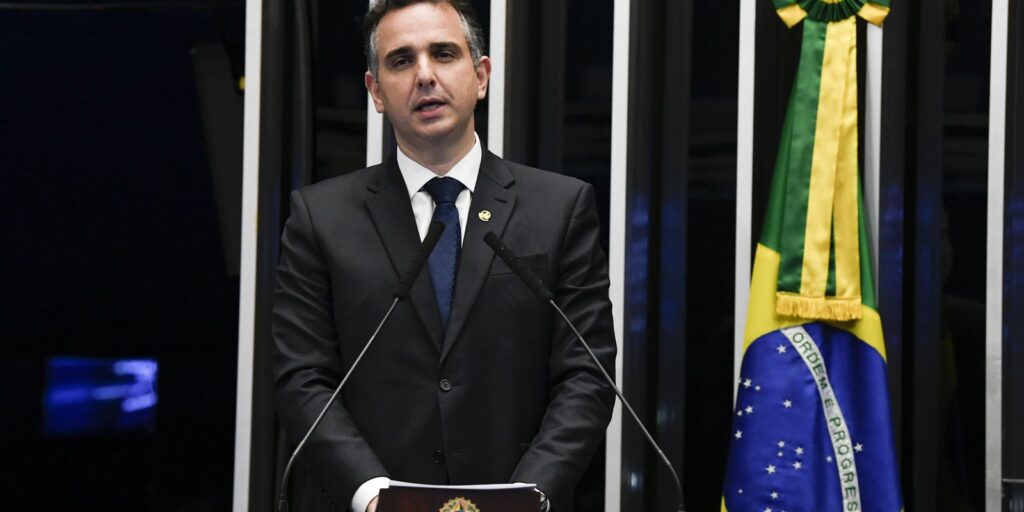Next Sunday, September 4, will be the final date on which the draft text of the new Constitution will be submitted to citizen deliberation, in an exit plebiscite with a mandatory vote that is part of a historical democratic process and that faces two options , in the context of a campaign marked by criticism, struggles, strong polarization and the constant disclosure of fake news.
The option that is the winner will mark the next destiny of the country and the end point of the constituent process enshrined in the Agreement for Social Peace and the New Constitution of November 15, 2019. Finally, the citizens will be in charge of evaluating the content of the new Magna Carta, which will have its last drafting phase starting next May 17, in the Harmonization, Preamble and Transitory Norms Commissions.
The truth is that, in order for the new regulations to come into force, beyond the result of this last stage of the restructuring of the current institutional framework, Congress will ultimately be in charge of deliberating on possible significant changes to the order enshrined in the text of 1980. The norms mandated by the Convention will therefore require the support of parliamentary majorities for their execution, which could prolong the implementation of these changes for a much longer time than expected. It could be several years and even a couple of decades, until certain structural reforms are glimpsed as concrete changes, beyond symbolism.
In the event that it is the I approve option that is imposed in the exit plebiscite, from different political forces that have formed the Convention, including official parties and groups, they make a call to take care of expectations, warning that a “box of frustrations” related to the implementation of the new Constitution, due to the fact that this possible new regulation must effectively be translated into laws that legitimize it, in a process that could take a long time to process, and that even, in certain matters, could be blocked by sectors of the current Congress that want to prevent its full validity. Among them, sectors of the center-right and former Concertación are targeted as those that could apply their strategies so that, on certain matters, the debate goes on longer than necessary.
Various voices from the ruling party reinforced the idea that, if there were a majority that supports the new Constitution, it would be “irresponsible and nonsense” to ignore the citizen mandate and hinder the implementation of the norms contained in it, specifically in areas that could generate disagreement in coalitions of the right or other sectors close to the former Concertación, which have expressed their concern about, for example, the proposals for territorial autonomy of indigenous peoples and the structural transformation of the Justice System, among other issues.
In this sense, the deputy and leader of Humanist Action (I Approve Dignity), Tomás Hirsch, warns that great care must be taken in respecting the constituent power. “We, the Congress, are a constituted power and we cannot assume the constitutional function, even laterally or partially. The constituent power is held by the Convention and what corresponds to us is to implement the popular mandate expressed in the exit plebiscite. If the Rejection wins in that instance, which I hope it doesn’t, we should also respect that outcome. If the result is as we hope, from the Approval, and hopefully by a large majority, the constituted power cannot cheat the mandate expressed since the beginning of this process, in the agreement signed on November 15, 2019, which requires that that Constitution becomes effective”, Hirsch pointed out.
From the center-right they responded to this summons arguing that they will support all the norms that, in their opinion, are beneficial for the development of the country, and that, in that case, their discussion and application must be done immediately. “Extending the term of application of any of them is simply lengthening the fuse of a bomb that the only thing that generates is the possibility of starting further, but it does not solve the problem”, admitted the conventional UDI and member of the Standards Commission Transitory, Pablo Toloza.
On the right, yes, they made a call to respect the autonomy of the Legislative Power, since they consider that neither the Constitutional Convention nor the Government is responsible for setting their methods and work deadlines. In this regard, they added that “Congress will have to act within its spheres of competence at the times it deems appropriate.”
A vision that is consistent with a strategy that they have applied, both within the Convention and in the political debate that surrounds the constituent process, and that has to do with an almost transversal rejection of fundamental transformations, especially in relation to those structural changes of the current institutions, such as those proposed in the project of the new Political System. An instance where both the center-right and traditional sectors of the former Concertación stepped forward, expressing their critical view of, for example, the elimination of the Senate. Despite enormous internal and media pressure, this rule was finally approved by the Plenary, which meant a major failure for those who are committed to respecting and maintaining the current institutional logic.
The “gradual” transition to the new institutionality
The conventional of the Plurinational Coordinator, Tania Madriaga, believes that the Transitory Norms Commission will be decisive in establishing the mandates of the constituent process, so that what is proposed is not a “dead letter” in the hands of Congress. “It must be proposed to the Plenary how and when the articles referring to the Executive will begin to govern, such as the re-election of the President, or the creation of new institutions, but it will also establish dates and procedures to guarantee fundamental rights and incident and binding participation processes, that respond to the demands of the social revolt of October 2019,” said Madriaga.
The majority of the constituents, however, are committed to trusting the current institutions, emphasizing that it was in Parliament itself that the agreement of November 19 was processed and a law was approved in this regard. From the ruling party they believe that this institutional will to promote transformations should be reborn, that –assume– they require a gradual approach that, in his opinion, is absolutely necessary.
A gradual transition from the 1980 Constitution to a possible new Magna Carta that could take several years, even decades -as noted above-, especially in relation to complex matters and profound transformations, such as regionalization, multinationality and the economic system, to name a few. The consecration of the Regional State, for example, would consider an implementation period of between 6 and 10 years, focused on the creation of new institutions and the adaptation of human capital, among other tasks. A process that is necessarily tied to the legislative discussion, because each of the articles on this proposal has its respective reference to the law.
A similar situation is the one that occurs in relation to the Political System, which is still being defined within the constituent body and that, once harmonized and submitted to the Transitory Norms, would only have a clearer schedule regarding the possible terms of its processing. , if the new Constitution is approved. Also pending is the discussion on the scheme for the implementation of Fundamental Rights, such as the Right to Education, the Right to Health and the Right to Social Security, central aspects of the definition of Chile as a Social State of Law, which It implies the creation of a series of public systems that also require a gradual start-up.
Regarding the structural changes that would eventually take place in the Judiciary and the proposal for the courts of indigenous justice, which produces discrepancies and criticism from various sectors, a source within the Transitory Norms Commission points out that “there are countries where unfortunately The laws of coordination between the indigenous systems themselves and the National Justice System were never enacted, in the concepts that we as a Convention are using. For the same reason, we are thinking of a regulation that gives a space of time that is wide enough so that these regulations can be dictated and that we do not fall into thinking in very limited times, because that could mean that we do not comply with the objective ”.
In the specific case of plurinationality, which is one of the innovative aspects that could be enshrined in the new Fundamental Charter and that responds to a skilful strategy on the part of the constituents of reserved seats, who have managed to dominate the discussion agendas in the different thematic commissions, there are serious doubts about its legislative process and subsequent implementation. Some parliamentarians from various political sectors have expressed that, in matters such as those of Indigenous Territorial Autonomy and its possible attributions, and in the event that a mandate is applied to Congress for its implementation, the debate could be delayed for several years and, There would even be regulations that could never be approved, due to the lack of clarity in the details of such regulations and due to the fact that the official forces do not reach a majority in either of the two Chambers.
Finally, and as for the risks that some of the norms contained in the new Constitution sleep too long in Congress, and that they never even come to fruition, there are some illustrative examples, both in our country and abroad. The first of them is related to the Administrative Constitutional Courts, enshrined in the 1925 Constitution, which were never implemented, where evidently the formation of the Legislative Power was totally different from the current one.
A similar example occurs with trials by popular juries, mandated in the Argentine Constitution of 1853, and which for various reasons have not been implemented nationally, and only work at the local level, where there are currently 10 provinces that have already approved a law that regulates these types of lawsuits.
It is important to consider that the constitutional discussion does not end on September 4 with the exit plebiscite, but rather, on the contrary, opens the big question about the implementation of a possible new institutionality, where the constituted powers, and in particular the political parties The politicians that make up Congress will play a decisive role in this gradual transition, which could cause frustration in those who expect immediate changes.











![[Videos] Willie Colón reappears after almost dying in a traffic accident: his talent is intact [Videos] Willie Colón reappears after almost dying in a traffic accident: his talent is intact](https://latin-american.news/wp-content/uploads/2022/05/Videos-Willie-Colon-reappears-after-almost-dying-in-a-traffic.png)




